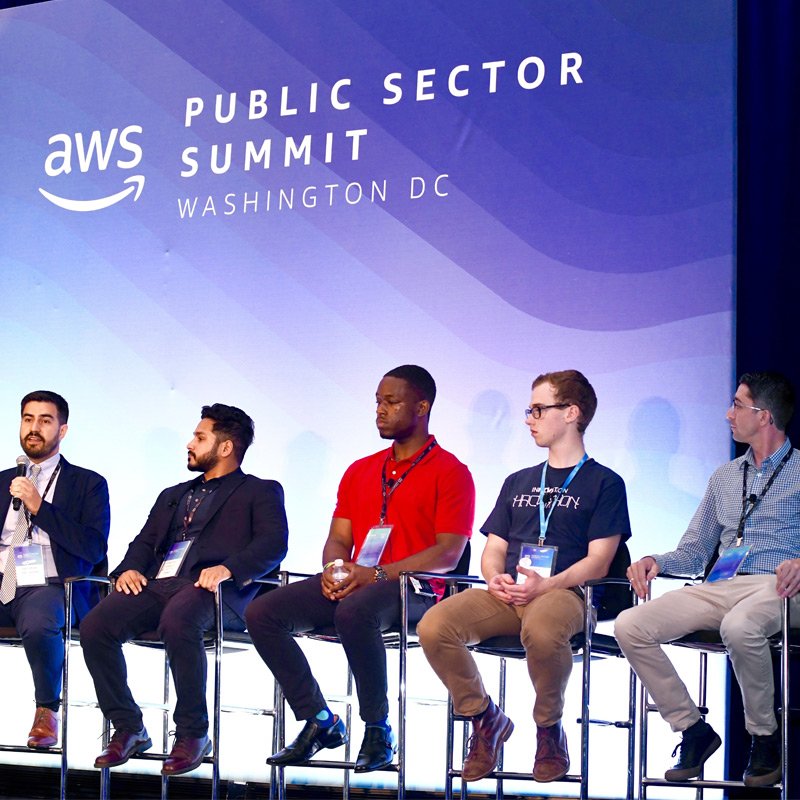It’s official: Amazon Web Services is partnering with two local colleges for a cloud computing degree program.
George Mason University and Northern Virginia Community College (NOVA) have collaborated with Amazon Web Services (AWS) Educate to create a Bachelor of Applied Science (BAS) pathway in cloud computing. Admitted students would study for two years to earn an associate’s degree from NOVA before continuing their education at George Mason, where they would receive a bachelor’s degree.
The partnership announcement came on June 12 at the AWS Public Sector Summit here in Washington, D.C. Though this partnership is new for George Mason, NOVA already established a partnership with AWS last year to offer a cloud computing specialization as part of its information systems technology associate of applied science degree. This new joint partnership, officially named the ADVANCE Partnership, will build on that initiative.
“This new pathway demonstrates our commitment to creating both educational and employment access” Michelle Marks, VP of academic innovation and new ventures at GMU, said in a press release. “These students will be prepared to compete for our region’s most in-demand jobs.”
With Amazon preparing to bring half of its second headquarters to Northern Virginia, we already talked about how this could potentially impact the DMV tech workforce, since the ecommerce giant promised to bring 25,000 jobs to the region by 2030. But Amazon’s HQ2 has ignited much growth on the educational spectrum for surrounding universities who want to make sure their students are on the front line of tech employment in the area. This joint partnership comes a few days after Virginia Tech announced its plans for its innovation campus in proximity to Amazon’s Arlington-based headquarters.
“Developing a cloud-ready workforce is an urgent challenge and an incredible opportunity,” Teresa Carlson, VP for AWS’s Worldwide Public Sector, said in a statement. “We are delighted to be working with these innovative institutions to turn the growing demand for cloud skills into pathways in technology for students from all backgrounds.”
Amazon said the curriculum was designed by George Mason and NOVA faculty with the help of AWS Educate. Touching on our career trajectory editorial focus this month, a program like this can connect students to jobs in cloud computing, which is among the most in-demand skillsets in the region. Students who graduate from this program can expect to land jobs in cloud architecture, cybersecurity, software development, DevOps and more.
The degree program will begin accepting students in the fall of 2020 and admitted students will receive a membership for AWS Educate, where they can gain hands-on experience with cloud tech and tools.







